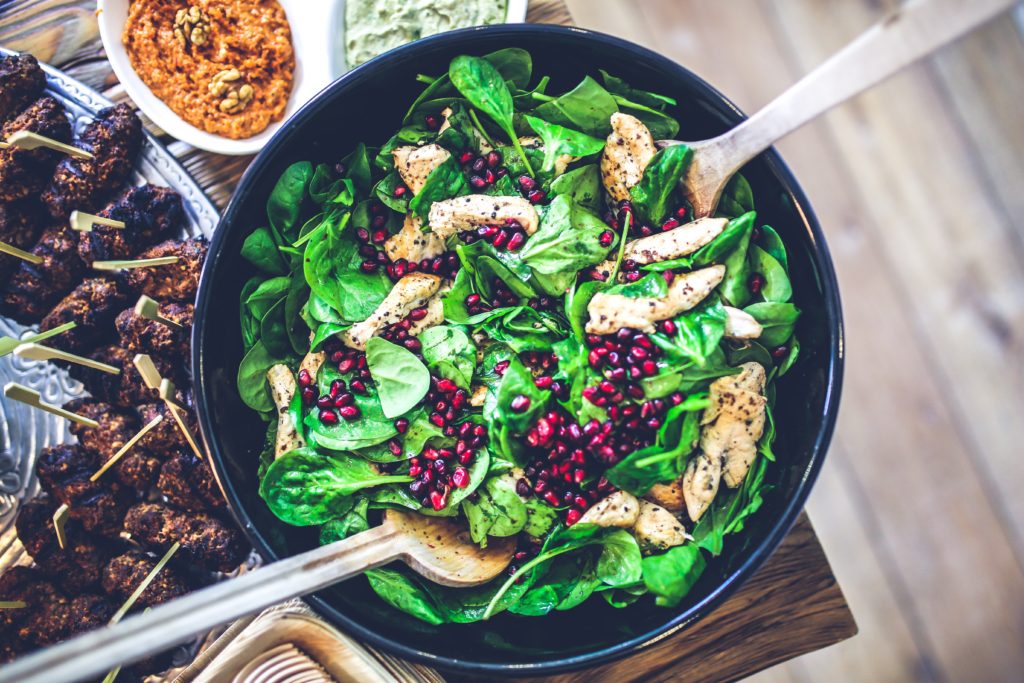Last Updated on: 30th August 2022, 04:30 am
Anyone who has a doctorate or who knows someone who went through the process knows that it can take over your life. But it shouldn’t take away from your life–at least not the core of passion that makes it worth living.
Unfortunately, is not uncommon to see graduate students go through a divorce, gain a great deal of weight, or experience lethargy and depression. Many schools are now telling students that self-care is important — something I’ve been telling my students and coaching clients for years.
In a world where more is rewarded and taking time for yourself can be thought of as weak, the concept of self-care is foreign to many. Couple that with the world of graduate school where there never seems to be enough time, and we have a recipe for problems.
But taking care of yourself is important. And if you can’t bring yourself to do it for the sake of your health and your relationships, keep in mind that not taking care of yourself puts your degree at risk, as major life changes, health issues, or mental breakdowns can derail your plan to get a PhD.
The following list is not all inclusive but will hopefully help start you on the road to balance and self-care.
1. Sleep

I can’t overstate the need for sleep. It’s important to get both enough sleep and to get it regularly. I read recently that the idea that we can catch up on sleep on the weekend or somewhere in the future is not true. Set up a routine where you go to sleep at the same time (within reason) and for a sufficient duration. Yes, you can function, for a while, on 3 hours sleep, but not for long and not without a lot of coffee and sugar. Plus, any scholarly work you do during that time will suffer.
2. Eat Well

When we get busy, many of us look for fast, simple answers when it comes to food. Unfortunately, that can mean food with few nutrients. Last time I checked, sugar is not one of the basic food groups.
When I was studying for my comprehensive exams I was all consumed in the process. Food took a backseat to studying. One day I went to sit down at my studying chair in my apartment with a one-pound box of cheese crackers. When I put it in the recycling bin I noticed that there were three empty one pound boxes already there. I was living on cheese crackers, cheap vanilla cream cookies, and jelly beans. At that moment I realized that I’d better reacquaint myself with vegetables soon.
Our brains are powered by the food we consume, and we need to make sure that fuel is high-quality. We can live off bad food for a short time, but setting up a pattern where you give your body healthy food for you is important.
3. Take Time Away

This is a hard one for almost everyone. Not only are graduate programs seemingly designed to break us, if we look like we are not working hard enough, faculty tend to assign more work.
That said, we all take time off in some way every day. Whether it is watching television, talking to friends, or petting the cat. We all need time off. The secret is to not feel guilty about it. When we feel guilty about it, we don’t get the benefits of time off.
A friend asked me to play tennis one weekend when I was a doctoral student and the whole time I felt guilty that I wasn’t doing work towards finishing my program. At the end of the hour, it dawned on me that I probably wouldn’t have done any work during that time anyway so if I was going to take time to do something that I liked I should actually enjoy it.
4. Exercise

In my graduate program, it was running that kept me sane. Getting out and using my body after hours and hours of using my brain really helped me feel better. The funny thing is, a number of times when I was running I was able to come up with solutions to problems that I was struggling with in my program. I believe that running allowed my brain to stop working so hard and gave solutions a chance to arise naturally.
Studies have shown that exercise boosts creativity and problem-solving abilities. Moments of insight and profound creativity also arise during moments of rest and relaxation rather than moments of intense focus. Our brains require this downtime to function at their fullest potential.
5. Be with Friends and Family

Even though you are immersed in graduate school it is good to make time to keep up with friends and family. You may not be able to do as much with them as you did before, but it can help to know that there are people out there who love and support you. Plus, you don’t have to be impressive with them; they like you for who you are. This may be a welcome respite from the competition and pressure of graduate school.
6. Make Time for Hobbies

Many of have hobbies — or at least had hobbies before we started a doctoral program. Hobbies could include running, yoga, painting, massage, meditation or any activity that seems to help you rejuvenate. Don’t give these up! They kept you sane before your graduate degree — think about how much they will help now.
7. Ask for Help

In both my roles as a dissertation chair and a coach helping doctoral students, I’ve observed the importance of asking for help. And not just academic help, either. Sometimes, asking for help just means crying on your friend’s shoulder, talking through your difficulties with your mom, or asking your spouse to take care of the kids and the dishes while you lie down for an evening.
You’re tackling one of the biggest mountains there is in academia, and you’ve demonstrated strength the whole way (or you wouldn’t be here) — you’re allowed to fall apart once in a while, too.
How to Find Time for Self Care
“I would take care of myself if I could find time.” Most of us have said this many times. Remember that you don’t need 3 hours of uninterrupted time (although it would be nice) to take care of yourself. Here are some practical tips for making time to take care of yourself.
- Build self-care into your morning routine. Take ten minutes every morning to do yoga or meditation or to sit outside. Half an hour would be even better, but start with what you know you can commit to.
- Exercise in small bursts. Walk up the stairs instead of using the elevator, or do a round of push-ups after every page you write. Keeping your body active will help your mind focus for longer periods of time.
- Utilize your commute. If you are commuting, call a friend or a family member along the way (if you are driving, obey all laws and use hands-free phone connections). If the distance is reasonable, consider riding your bike or walking to work or the grocery store instead of driving.
- Incorporate healthy foods into your diet. Add more vegetables and salads to your meals. Stock up on healthy snacks for emergencies. Use a crock pot or instant pot for easy meals made with whole foods.
- Use your evening routine. We all have an evening routine, even if it’s as simple as brushing our teeth. Add a simple, relaxing self-care activity for a reasonable amount of time (10 minutes is great) in order to go to bed feeling relaxed rather than overwhelmed. This can make a world of a difference.
- Schedule self-care on your calendar. I’ve heard, “If it isn’t on your calendar, it doesn’t exist.” This applies to self-care just as much as it does to other tasks. Schedule a meeting with a friend for coffee on Sunday morning, time to take a walk in nature, or a trip to the gym on your calendar and treat it like it’s as important as any of your other commitments — because it is.
- Learn to recognize burnout. When you’re banging your head against a brick wall (either literally or figuratively), you’re not productive and anything you do produce won’t be your best work. By taking a break for self-care, you’ll actually improve the quality and amount of work you do in the long run. Learn to recognize when you’ve reached (or are about to reach) a point of burnout, and take some time away. Your work will be better for it.
These simple things can get you started on the path towards self care and don’t really take much time at all.
I may not have hit on every possible self-care option available, so feel free to add or substitute the things that you most benefit from. The important point is to take care of yourself. Your program may tell you to take care of yourself during graduate school but only you can make it a priority. So, go take a walk, visit a friend, or sit and watch nature. It will all help you stay healthy and finish faster.
 Waiting to Get Your Dissertation Accepted?
Waiting to Get Your Dissertation Accepted?




0 Comments